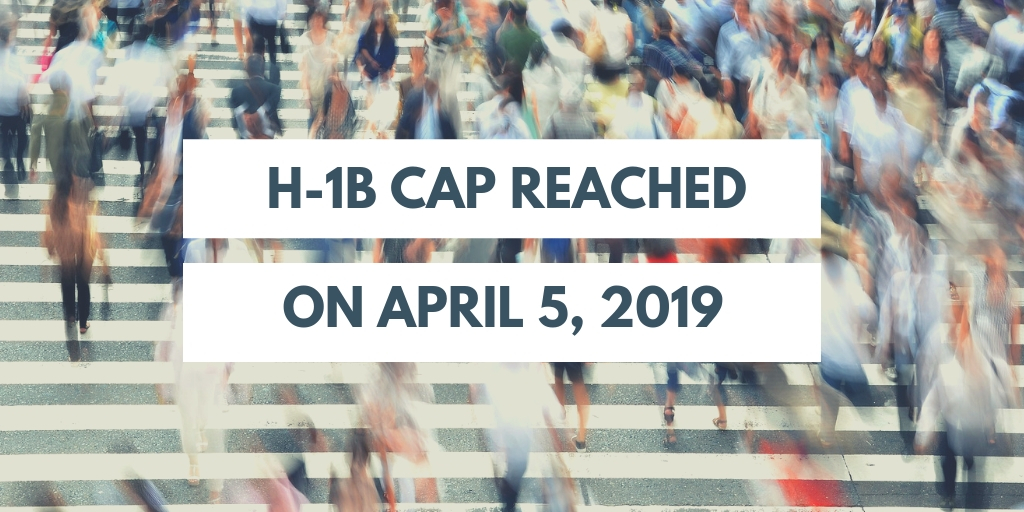Alert: FY2020 H-1B Cap Reached on April 5th
The U.S. Citizenship and Immigration Service (USCIS) announced that, as of Friday, April 5th, they have received a sufficient number of H-1B petitions to meet the annual H-1B cap for the 2020 fiscal year (FY2020). According to USCIS, they have received more than 65,000 general H-1B cap petitions. As a result, any cap-subject H-1B petitions received by USCIS after April 5, 2019 will be rejected.
The Lottery Process
USCIS will use a computer-generated random selection process (commonly known as the “lottery”) for all FY 2020 cap-subject petitions received between April 1 and April 5, 2019. The agency will conduct the selection process for regular H-1B cap cases first, following by a lottery to allocate the advanced degree exemption petitions. Due to the high number of petitions received, USCIS is not yet able to announce the exact day of the random selection process.; however, our past experience suggests that the lottery should be completed by mid- to late-April. Also, the total number of petitions received is not yet known due to the large volume of applications.
Petitions Not Selected under the Lottery Will Be Returned With Filing Fees
Petitions accepted for filing but not selected under the lottery will be returned to the petitioners together with the filing fees (unless there were duplicate filings by the same employer for the same beneficiary, in which case no fees will be returned – see also further restrictions on multiple H-1B cap filings).
Post-Lottery Processing
Petitions which are selected under the lottery will be issued receipt notices and will be put in a processing queue. Due to the heavy demand this year, we expect the H-1B processing times to be somewhat long. All H-1B cap cases will likely have to wait until late April or May to find out if they have been accepted under the H-1B cap lottery when the receipt notices start to be issued. Please also see this article for additional anticipated timelines for this H-1B cap filing season.
H-1B Cap-Exempt Petitions Still Accepted
It should be noted that USCIS continues to accept cap-exempt H-1B petitions. These are petitions generally filed by universities and non-profit research organizations (read more about cap-exempt employers). Also, H-1B extensions and H-1B transfers are cap-exempt.
Conclusion
The FY2020 H-1B cap was reached, as anticipated during the first week it was open. The reasons for the high H-1B demand this year may be caused by the improving economy. Another reason may be the fact that due to the uncertainty of the new administration’s H-1B work visa policy, many employers and candidates wanted to apply under the current system before any possible changes are introduced.
We will continue providing updates on the FY2020 H-1B cap season, including filing statistics, as they become available. In the meantime, please feel free to subscribe to our free weekly newsletter to obtain developments on this and related topics. If our office can be of any help, please feel free to contact us.
Related News and Articles
The Capitol Immigration Law Group has been serving the business community for over 15 years and is one of the most widely respected immigration law firms focused solely on U.S. employment-based immigration. Disclaimer: we make all efforts to provide timely and accurate information; however, the information in this article may become outdated or may not be applicable to a specific set of facts. It is not to be construed as legal advice.

